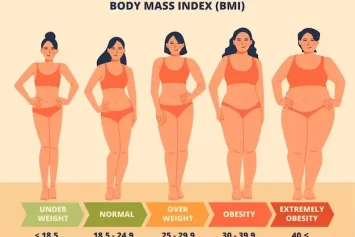Health is wealth, and regular health check-ups are the cornerstone of maintaining overall well-being. These proactive measures allow individuals to monitor their health, detect potential issues early, and prevent the onset of chronic conditions. No matter the age group, routine health assessments can significantly improve the quality of life. Let’s explore the importance of regular check-ups for all age groups and how they contribute to a healthier, happier life.
What Are Regular Health Check-Ups?
Regular health check-ups are comprehensive medical evaluations performed periodically, even when there are no apparent symptoms or health complaints. These assessments often include:
- Physical examinations
- Blood tests
- Urine tests
- Imaging studies (e.g., X-rays, ultrasounds)
- Lifestyle counseling
- Vaccination updates
These tests help assess the functioning of vital organs, identify risk factors for diseases, and provide a roadmap for preventive care.
Why Are Regular Check-Ups Essential?
- Early Detection of Illnesses: Many diseases, such as diabetes, hypertension, and cancer, develop gradually and may not exhibit noticeable symptoms in their early stages. Regular health check-ups help detect these conditions early, enabling timely treatment and better outcomes.
- Prevention of Chronic Diseases: Lifestyle-related conditions like obesity, cardiovascular diseases, and respiratory disorders can often be prevented with early intervention. Regular monitoring allows for timely advice on diet, exercise, and other lifestyle changes.
- Reducing Healthcare Costs: Preventive healthcare is less expensive than emergency care or treatment for advanced diseases. Regular check-ups can reduce the financial burden by addressing issues before they escalate.
- Boosting Life Expectancy: Consistent health monitoring ensures a higher quality of life and longevity. Early diagnosis and management of health risks contribute to a healthier and longer life.
Health Check-Ups by Age Group
Each stage of life comes with unique health needs. Tailored health check-ups ensure that individuals receive age-appropriate care.
1. Infants and Children
Why It’s Important:
- Early childhood is a critical phase for growth and development. Regular pediatric visits ensure that a child is meeting developmental milestones, receiving the necessary vaccinations, and staying on track with overall health.
Key Focus Areas:
- Growth Monitoring: Tracking height, weight, and head circumference to ensure proper growth.
- Immunizations: Staying up-to-date with vaccination schedules to protect against preventable diseases.
- Developmental Screenings: Monitoring physical, cognitive, and emotional milestones to detect any delays or abnormalities.
- Nutritional Advice: Guidance on proper nutrition to support growth and immunity.
- Parental Education: Counseling parents on safety measures, hygiene, and general care.
2. Adolescents (13–18 Years)
Why It’s Important:
- Adolescence is a time of rapid physical and emotional changes. Regular check-ups during this period focus on ensuring healthy development, addressing mental health concerns, and reinforcing good habits.
Key Focus Areas:
- Puberty and Hormonal Changes: Monitoring physical development and addressing concerns like delayed puberty or acne.
- Mental Health: Screening for depression, anxiety, or other mental health issues common in teenagers.
- Vaccinations: Ensuring protection against diseases like HPV and meningitis.
- Lifestyle Guidance: Discussions around diet, exercise, sleep, and the risks of smoking, alcohol, and substance abuse.
- Sexual Health Education: Offering guidance on safe practices, contraception, and awareness of sexually transmitted infections (STIs).
3. Adults (19–40 Years)
Why It’s Important:
- This stage of life often includes a focus on career, family, and personal goals, leading to potential neglect of personal health. Regular health check-ups help manage stress, monitor fitness levels, and detect early signs of chronic conditions.
Key Focus Areas:
- General Physical Exam: Assessing overall health, including blood pressure, cholesterol, and blood sugar levels.
- Screenings: Testing for common conditions like diabetes, hypertension, and heart disease.
- Mental Health: Monitoring stress, anxiety, and depression related to work and personal life.
- Lifestyle Counseling: Encouraging a balanced diet, regular exercise, and avoiding smoking or excessive alcohol consumption.
- Reproductive Health: For women, regular gynecological exams and Pap smears; for men, discussions on prostate health and fertility.
4. Middle Age (41–60 Years)
Why It’s Important:
- Middle age often marks the onset of lifestyle-related diseases and age-related health issues. Regular health check-ups during this period focus on early diagnosis and management of chronic conditions.
Key Focus Areas:
- Cardiovascular Health: Monitoring cholesterol levels, blood pressure, and heart function to prevent heart disease.
- Cancer Screenings: Regular mammograms, colonoscopies, and prostate exams for early cancer detection.
- Bone Health: Screening for osteoporosis, especially in postmenopausal women.
- Metabolic Disorders: Testing for conditions like diabetes and thyroid imbalances.
- Stress and Mental Health: Managing the pressures of work, family, and aging parents.
5. Seniors (60+ Years)
Why It’s Important:
- As people age, they become more susceptible to chronic illnesses and age-related conditions. Regular check-ups help manage these issues and improve the quality of life.
Key Focus Areas:
- Chronic Disease Management: Monitoring and treating conditions such as arthritis, diabetes, and hypertension.
- Vision and Hearing: Regular eye exams for cataracts or glaucoma and hearing tests to address age-related decline.
- Bone Health: Assessing and managing osteoporosis to reduce the risk of fractures.
- Cognitive Health: Screening for memory loss and cognitive decline, including Alzheimer’s or dementia.
- Vaccinations: Administering vaccines for the flu, pneumonia, and shingles.
- Mobility and Fall Prevention: Evaluating balance and providing advice on preventing falls.
Overcoming Barriers to Regular Check-Ups
Despite the benefits, many people neglect routine health check-ups due to:
- Cost Concerns: Emphasize that preventive care is often less expensive than treating advanced diseases.
- Time Constraints: Highlight the importance of prioritizing health and making time for check-ups.
- Fear of Diagnosis: Address fears by explaining that early detection often leads to better outcomes and simpler treatments.
Hospitals and healthcare providers can also play a role by offering affordable health packages, flexible scheduling, and telemedicine options.
How Hospitals Can Encourage Regular Check-Ups
Hospitals and clinics can promote regular health check-ups by:
- Offering Health Packages: Bundled services tailored to age groups and specific needs.
- Awareness Campaigns: Educating the public on the importance of preventive healthcare.
- Convenient Scheduling: Flexible hours and online booking options.
- Telemedicine Services: Allowing patients to consult doctors from the comfort of their homes.
Conclusion
Regular health check-ups are a small investment with significant returns. They empower individuals to take charge of their health, detect problems early, and adopt healthier lifestyles. Regardless of age, maintaining a routine of preventive care ensures not only a longer life but also a more fulfilling and vibrant one. Remember, prevention is better than cure—schedule your next health check-up today!




